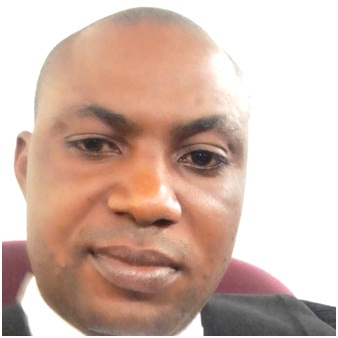Position of the law on disconnection of Electricity supply
By Bamidele Kolawole
Electricity is indispensable to the socio-economic and industrial development of the nation. Electricity is regulated under the law, and parts of such legislations governing the distribution of electricity supply in Nigeria are majorly the Electricity Power Sector Reform Act(EPSRA), Nigerian Electricity Regulatory Commission (NERC’s) Connection and Disconnection Procedures for Electricity Services, 2007, and the NERC’s Customer Complaints Handling: Standards and Procedures, 2006.

The Supreme Court gave a verdict in a particular case, that “any unmetered house must not be billed, i.e, cannot pay any money Sum.”
There are a plethora of authorities that say that” Electricity Suppliers must issue notice to consumers before disconnection”, impliedly, the monthly Electricity Bill is not a NOTICE for disconnection, rather, it constitutes a demand for payment of outstanding or Current Bill Sum, and cannot serve as Notice for disconnection.
Meanwhile, most of the Judgments are Based on the provisions of the “NATIONAL ELECTRICITY REGULATION AND REFORM ACT”

We have The Nigerian Electricity Regulatory Commission, this commission is empowered by the Electric Power Sector Reform (EPSR) Act2005, to ease and effectively managed electricity supply that Meets the yearning of Nigerians for stable, adequate, and safe electricity supply to the consumers.
The commission specified 15 obligations to be performed by the Discos, Among which are; 1. all new electricity connections must be done strictly based on the meter before connection,
2. All consumers have the right to supply electricity.
3. all consumers have a right to a properly functional meter
4. All consumers have a right to proper information on services …..
7. It’s the customer’s right to be notified in writing ahead of disconnection of the electricity service by Disco serving the sustainer in line with NERC’S guideline
The same Act also specified 11 obligations to the consumers, among which are; to pay electricity bills, to demand bills, not to bypass light supply, to report the case of bypass to the disco, to inform the Discos about bills they met whenever they relocated to a new house, to protect electricity cable, etc.
Following from the above, the Discos had no duty to disconnect any consumer if they are alive to their responsibilities, for instance, if every consumer is supplied with a prepaid meter, there is no way any consumer can enjoy the light without first of all paid for the issue of disconnection will not have a place because if every consumer has a prepaid meter, there is no way any consumer can enjoy electricity supply without paying for it, and if a consumer should bypass light, there is punishment for it if caught.
Also, if there is a need for the Disco to disconnect any consumer electricity supply, such a consumer has to be notified formally by the Disco.

Electricity is indispensable to the socio-economic and industrial development of the nation. Electricity is regulated under the law, and parts of such legislations governing the distribution of electricity supply in Nigeria are majorly the Electricity Power Sector Reform Act(EPSRA), Nigerian Electricity Regulatory Commission (NERC’s) Connection and Disconnection Procedures for Electricity Services, 2007, and the NERC’s Customer Complaints Handling: Standards and Procedures, 2006. Considering the position of law on disconnection of power supply, a distribution company must issue a Written Notice of Disconnection to their customer as per section 9 of the NERC’s Connection and Disconnection Procedures for Electricity Services, 2007; without which any disconnect of the customer’s power supply becomes illegal. This is well illustrated in the case of Kargo v. Hussaini & Anor (2019) LPELR-47248(CA).
By Connection and Disconnection Procedures for Electricity Services, 2007, the electricity of a customer can only be disconnected when the customer has not paid the amount CORRECTLY BILLED as at the relevant payment date, provided that before the disconnection:
The payment date is clearly shown on the bill and the disconnection date is at least 10 working days from the date the bill was delivered. 5(1)(a) & (b)
There are no conflicting payment dates given to the same customer on two different occasions over the same supply. 5(1)(c)
The time frame between the payment date and the disconnection date is not less than 3 months. 5(1)(d)
Upon verification, the bill has not been paid. 5(1)(e)
There is a prior written warning of an impending disconnection for failure to pay by the customer. 5(1)(f)
Similarly, a distribution company does not have any right whatsoever to disconnect your electricity without notice and more so, when you have paid your bills. The recent case of Jos Electricity Distribution Plc V. Barr. Dalat Lengnan illustrates this point succinctly.
However, there exist exceptions to the rule. Electricity supply may lawfully be disconnected WITHOUT NOTIFYING THE CUSTOMER which are:
Where the Customer is connected to the Distribution Company’s network illegally — 6(a)
where the Distribution Company considers a Customer’s installation to be dangerous to the health and or integrity of the network and /or the quality of supply to other Customers – 6(b)
Furthermore, by Procedures 6(c), electricity may equally be disconnected where, due to any act or omission of a Customer, a meter located in his premises is inaccessible to be read for a period of three consecutive bills. But before this can be done, THE DISTRIBUTION COMPANY MUST:
Inform the Customer by written notice or telephone contact of the inaccessibility of the meter and request him to provide access arrangement and he fails to do so ;
Give the Customer a written warning that unless he provides access by a given date (which shall not be less than 10 working days to enable the Customer to provide reasonable access arrangement) electricity supply to the Customer shall be disconnected.
Similarly, by Procedure 7, the electricity supply of a customer can only be disconnected where the Customer refuses to provide a form of identification acceptable to the Distribution Company and/or refuses to pay the security deposit requested by the Distribution Company PROVIDED THAT:
(a) The Distribution Company gives the Customer at least 10 working days’ notice in writing that the supply may be disconnected if he fails to provide the necessary form of identification and/or payment of the security deposit; and
(b) The Customer fails to provide the required form of identification and/or security deposit within the period stipulated in the notice of disconnection.
It is instructive to also note that a customer of his own volition can request that the electricity supply to his premises be disconnected. If this request is made, the consent of other customers (if any) in the premises where the request was made must be obtained by the Distribution Company. Hence, if this is done, a Distribution Company shall not bill the Customer for any period after the date on which the electricity supply to the premises should have been disconnected unless the request was canceled. See Procedure 8.

The existence of a debt or unpaid bills per se does not extinguish the protection accorded to the customer by sections 5(1)(d)(e) and (f) of the Nigerian Electricity Regulatory Commission (NERC’s) Connection and Disconnection Procedures for Electricity Services, 2007 and 7(4) of the NERC’s Customer Complaints Handling: Standards and Procedures, 2006; as it carries several safeguards, which must be complied with before any distribution company could lawfully so to speak, go on a frenzy of disconnecting customers’ electricity supply to their homes.
The courts have noted with clear disappointment that the production and distribution of electricity supply in Nigeria has, for overtime fallen on evil days.
A situation where the distributors of electricity would brazenly flout the regulations governing their activities amid a persistent and perennial epileptic supply of electricity to homes and institutions is unacceptable.
In taking closer scrutiny at sections 5 and 9 of NERC’s Connection and Disconnection Procedures for Electricity Services, 2007; it is glaring that non-compliance cannot warrant any distribution company to disconnect customers’ power supply.
A distribution company must issue a Written Notice of Disconnection to their customer as per section 9 of the NERC’s Connection and Disconnection Procedures for Electricity Services, 2007; without which any disconnect of the customer’s power supply becomes illegal. See the case of Kalgo v. Hussaini & Anor (2019) LPELR-47248(CA).
Federal Competition and Consumer Protection Commission, FCCPC, has said no electricity distribution company (Disco) has the right to disconnect a customer without first serving a notice for at least 10 working days from the date of delivery of their bill.
The commission further said the Disco must notify the consumer in writing ahead of the disconnection of electricity service before doing so, adding that upon payment of an outstanding bill, it must reconnect the consumer within 24 hours.

A serving distribution company (DisCo) is obliged by the law to notify its customers in writing before the disconnection of electricity service in Nigeria.
This is according to the Nigerian Electricity Regulatory Commission (NERC) regulation on Connection and Disconnection Procedures for Electricity Service (CDPES).
The NERC, empowered by the Electric Power Sector Reform (EPSR) Act, 2005, must ensure that the electricity supply industry is efficiently run to satisfy the electricity needs of Nigerians.
According to the EPSR Act, NERC is vested with the power to ‘establish appropriate consumers rights and obligations regarding the provision and use of electricity services amongst others.
The existence of a debt or unpaid bills does not extinguish the protection accorded to the customer by sections 5(1)(d)(e) and (f) of the Nigerian Electricity Regulatory Commission (NERC’s) Connection and Disconnection Procedures for Electricity Services, 2007 and 7(4) of the NERC’s Customer Complaints Handling: Standards and Procedures, 2006; as it carries several safeguards, which must be complied with before any distribution company could lawfully disconnect customers’ electricity supply to their homes. The distribution company will be penalized if the conditions are not fully adhered to.
The courts have noted with clear disappointment that the production and distribution of electricity supply in Nigeria has, for overtime fallen on evil days.
A situation where the distributors of electricity would without prior and adequate notice to a customer disconnect his electricity is frowned upon.
In taking closer scrutiny at sections 5 and 9 of NERC’s Connection and Disconnection Procedures for Electricity Services, 2007; it is glaring that non-compliance cannot warrant any distribution company to disconnect customers’ power supply.
A distribution company must issue a Written Notice of Disconnection to their customer as per section 9 of the NERC’s Connection and Disconnection Procedures for Electricity Services, 2007; without which any disconnect of the customer’s power supply becomes illegal. See the case of Kalgo v. Hussaini & Anor (2019) LPELR-47248(CA).
According to the CDPES regulation, a DisCo can disconnect supply when the customer refuses to pay the amount correctly billed, at the payment date.
This is dependent on the following factors:
The payment date must be indicated on the bill for a DisCo to be eligible to disconnect its customer’s power supply.
The bill must have been delivered 10 working days before the payment deadline.
A DisCo must ensure that the payment date has not been superseded by a subsequent payment date issued to the same customer.
The distribution company must have checked its records to be sure that the bill had not been paid.
Also, the regulation stated that the electricity supply could be disconnected if the customer refuses to provide acceptable identification or security deposit, after the DisCo’s prior written notice.
It is unlawful for a DisCo to barge into a customer’s premises to disconnect electricity without first writing to the address of the customer intimating him of their intention to disconnect his electricity based on the facts earlier stated above, even though the customer had outstanding bills before the disconnection date.
The regulation said that before disconnection, DisCo must have issued a written warning, stating specifically that the customer’s electricity supply will be disconnected, if the payment is not remitted at the appropriate date.
The written warning must contain the date it was delivered to the customer’s address and a telephone number or address where the customer could call for assistance to pay the outstanding bill.
Another question that can be asked is whether the electricity of a customer can be disconnected without Notice.
The provision stated that a customer’s electricity supply can be disconnected without notice only on three grounds.
1. When a customer is *illegally connected* to DisCo’s network, the company could disconnect the power supply without notice.
2. when the customers’ installation is deemed to be dangerous to DisCo’s network, and the quality of supply to other customers, it would be justifiable to cut off the electricity supply of such customers.
Aside from the reasons stated above, electricity can not be disconnected without a prior notice to the customer informing him of the date, time, and reason for disconnection failing which the Electricity company shall be liable for a fine for a wrongful disconnection.

Disconnection is disconnection now. You don’t pay, you don’t get to use light even in advanced countries they disconnect your gas supply if you don’t pay. You are only entitled to notice before the disconnection.










